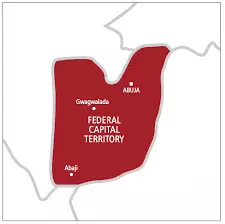- Home
- /
- Trending-News
- /
- Water shortage is a...
Water shortage is a challenge at our slaughter slabs – Council official laments

Water shortage is a huge challenge at livestock slaughter slabs in Bwari Area Council of the FCT, Dr Babatunde Kayode, Head, Agriculture Department at the council has said.
“We have wells dug at the facilities for water supply, but they dry up during the dry season.
“Butchers are compelled to buy water from local vendors during the dry season for cleaners to use,’’ he said on Thursday.
Kayode added, however, that the council chairman, Mr John Gabaya, had promised to provide boreholes at the facilities to ensure maintenance of standard hygienic practices.
“Hygiene is very important in these facilities so as to ensure that meat processed there are fit for human consumption.
“The situation needs continuous monitoring. We have veterinary officers stationed at the facilities to inspect the processes and we also have cleaners who clean the slabs regularly,’’ he said.
He expressed confidence in the promise made by the council chairman to provide boreholes and assured residents that hygiene standards would improve at the abattoirs soon.
Kayode also said that butchers had been instructed to keep good hygiene by packing meat neatly in bags before taking them from the abattoirs to markets.
He said enforcement officers had been deployed at all necessary points to ensure proper handling of meat from the butchery to the different points of sale.
He said the council regularly vaccinated livestock in collaboration with the FCT Administration to stave off Anthrax and other livestock diseases.
Anthrax is a serious infectious disease caused by gram-positive, rod-shaped bacteria known as Bacillus anthracis.
It occurs naturally in soil and commonly affects domestic and wild animals. People can get sick with anthrax if they come in contact with infected animals or contaminated animal products.
“We usually liaise with traditional heads of communities to get herders to assemble their herds at designated locations for the vaccination of the animals.
“This, we have been doing for sometimes and it has helped us to vaccinate a good number of animals,’’ Kayode said.
He lamented the fact that the council’s veterinary clinic at Jigo community and some other facilities were not functioning because of lack of funds.



